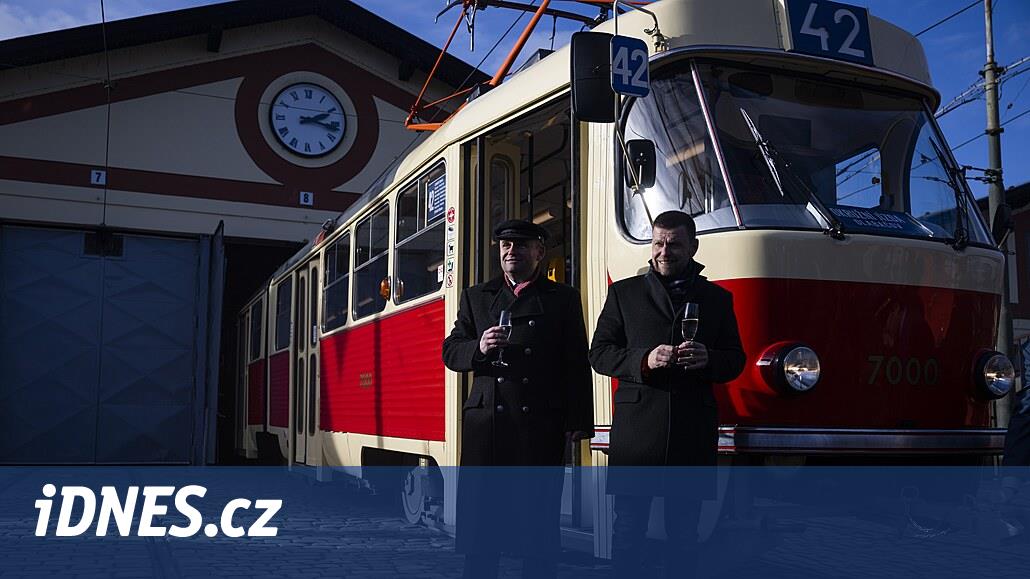Prague in 50 years? Every fourth inhabitant will be a foreigner
The population of Prague will increase by 411 thousand in the next 50 years, women will give birth at a later age and more children will be born. Life expectancy will also increase. Fill it out from a recently published projection by the Czech Statistical Office (CSO). Although the Czech capital will be another region with a positive natural increase in the next fifty years, it will “gain” only 64,000 inhabitants in this way.
The number of Praguers will increase mainly due to foreign migration. According to the forecast, 7 to 10,000 people are expected to come to the metropolis every year. “The forecast of the population development depends on the development of the birth rate and on how people will age. This can be predicted with good reliability, “comments Tomáš Kostelecký, director of the Institute of Sociology of the Academy of Sciences of the Czech Republic.
In 2031, there will be a break in the birth rate
However, unforeseen political events may reverse developments. “But only if, for example, a million Ukrainians do not come to us because of the war in Ukraine. The smaller the forecast area, the greater the role of the political and economic situation, “adds Kostelecký.
According to the CZSO, fewer children will be born in the next twelve years. None in 2031, when they will be born 12% less than last year. After that, the birth rate will increase. The CZSO assumes that all women will give birth equally, regardless of their origin and reason for migration. In 2060, however, the number of children born will fall due to the death. “After 2031, an increase in the birth rate is expected, because the projection assumes a uniform reproductive regime for all women,” the CZSO reports.
Prague women will bring children to the world at a later age. The average age of the mother at birth will increase to 32.1 years from the current 31.7 years. The average fertility per woman will increase from the current 1.57 to 1.60 children.
Praguers are now reaching the highest age in the entire republic and this trend will continue. By 2070, the CZSO expects to increase the value of life expectancy for men to 86.2 years and for women to 89.5 years, which will equalize the difference between men and women over the years.
The natives will leave
According to statisticians, Praguers will continue to move a lot away from their city. According to Kostelecký’s sociology, however, the outflow will depend on factors that are not very predictable.
“For example, one of the politicians goes crazy and imposes a very high toll and people may not want to go to Prague and angry people start moving away. Or, on the contrary, the building law will be simplified, brownfields will be opened and thousands of new houses will be built on them. It is not possible to completely estimate whether and when this will happen, “primary Kostelecký.
According to the CZSO, over 92,000 inhabitants will move out of Prague in the next fifty years, and 1.1 to 2.3 thousand people should leave it every year. The metropolis will thus become the city from which the most natives in the Czech Republic leave.
“If you asked someone four years ago what would happen in the 1990s, he would not have guessed that the regime would collapse and another economic system would come,” adds Kostelecký.
The problem will be the capacity of roads
In any case, Prague will swell in population. The population is expected to increase by 411 thousand in half a century, the vast majority of new Praguers will be recruited from abroad. In 2070, foreigners should make up about 25 percent of the capital’s population.
In any case, the radical increase in people requires the need for new flats, in which Prague still hides its potential. According to the sociologist, the question is whether the metropolis can use its large undeveloped space.
“If we look at the map, we will see how big Prague is and a large part of the outskirts is not built up. A lot of construction is suburban, but the place is also inside Prague. It’s just a matter of whether the political representation wants it, but purely technically it’s not such a problem, “he says.
However, according to him, the problem may occur in transport. “The question is what would happen if each family had two cars and drove them from one end of Prague to the other. The possibilities of those communication ones can not be much increased, they would have to use public and shared transport more, “adds Kostelecký.



